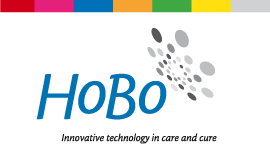Improving anti-epileptic drug treatments by neurostimulation
By using non-invasive neurostimulation, specifically transcutaneous auricular Vagus Nerve Stimulation (tVNS), they hypothesise that the brain of epilepsy patients can be prepared (“primed”) for improved response to anti-epileptic drugs. In a newly formed partnership, Eindhoven University of Technology has teamed up with the Academic Centre for Epilepsy Kempenhaeghe, pharmaceutical company UCB Pharma B.V., and Hobo Heeze B.V. to investigate this hypothesis.
Epilepsy is the most prevalent neurological disorder in the Netherlands, affecting roughly 120.000 patients. The impact of the disorder is considerable for patients, especially if the epilepsy is refractory to treatment. Despite treatment with adequately dosed anti-epileptic drugs, approximately 30 percent of patients still suffer from ongoing seizures.
Recently, specific and long-lasting plasticity of the brain has been reported after VNS. This causes flexibility of regions in the brain, which, as a result, become more susceptible to subsequent stimuli. This project proposes to use neurostimulation to direct neural plasticity to pathological epileptic networks, to prepare (or “prime”) the brain for consecutive treatment with anti-epileptic drugs. Specifically, they will use transcutaneous VNS (a non-invasive form of VNS) to “prime” the brain for the novel anti-epileptic drug Brivaracetam. The study consists of assessing a randomised cohort of patients who receive neurostimulation followed by pharmacological treatment, versus patients who receive pharmacological treatment only. The method of priming the brain for anti-epileptic drugs will help epilepsy patients to regain and maintain functionality, thereby reducing disease burden.
The overall deliverable of the project is to develop new treatment options for refractory epilepsy patients using neurostimulation preceding pharmacotherapy. The two academic partners combine their technical and clinical expertise to help UCB Pharma build on their portfolio towards electroceuticals, and Hobo Heeze to exploit the gathered results from the project. The proposed innovation will make epilepsy treatment more effective.
The project will tie in with the multi-disciplinary brain research program Neu3CA, which is a cooperation between Ghent University/Ghent University Hospital, Kempenhaeghe and Eindhoven University of Technology, see www.neu3ca.org.




